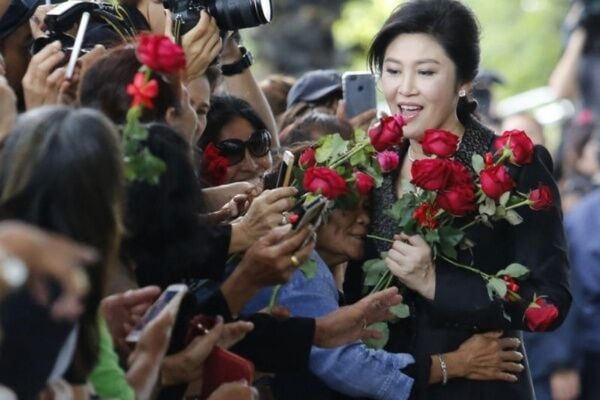Thai anti-corruption commission lets go of Yingluck’s exoneration

Thailand’s National Anti-Corruption Commission (NACC) has unanimously chosen not to contest the Supreme Court’s ruling, which exonerated former prime minister Yingluck Shinawatra and five others from malfeasance charges linked to a 240-million baht public relations campaign, according to an insider familiar with the situation.
The NACC filed allegations against Yingluck, former Prime Minister’s Office minister Niwatthamrong Boonsongpaisan, Yingluck’s secretary-general at the time, Suranand Vejjajiva, Matichon Plc, Siam Sport Syndicate Plc, and Siam Sport director Ravi Lohtong. They were accused of abusing their authority by neglecting to hold public tenders for the PR campaign from August 2013 to March 2014. Consequently, Matichon and Siam Sport, the media firms, were favoured and received the contracts.
Yingluck, Niwatthamrong and Suranand commissioned Matichon to manage a campaign in 12 provinces to boost infrastructure projects, which the government intended to fund with a 2 trillion baht loan.
The NACC stated that the 240 million baht spent on the campaign was squandered when the promotional roadshow was cancelled following the Constitutional Court decision that the proposed legislation for borrowing was unconstitutional.
However, the Supreme Court ruled that there was no harm to the state concerning the PR fund distribution and contract award to Matichon and Siam Sport, as government organisations and the Cabinet had endorsed the Yingluck government’s transport infrastructure projects. The Budget Bureau also agreed that Yingluck, as prime minister, could allocate a contingency fund for the PR project. Therefore, the NACC had no legal grounds to appeal, the source said.
According to Thepthai Senapong, a former Democrat Party MP for Nakhon Si Thammarat, the NACC’s decision to drop the case eliminates yet another hurdle in the way of former premier Thaksin Shinawatra assuming full political control of the government.
Self-exile
Thaksin and his sister Yingluck fled the country to evade sentences handed down by the Supreme Court. Thaksin was convicted for helping his then-wife acquire prime land in Bangkok at a discounted rate while he was prime minister, whilst Yingluck was found guilty of neglect of duty over a rice-pledging programme that resulted in at least 500 billion baht in losses, some of which stemmed from corruption, reported Bangkok Post.
Ever since Thaksin returned to Thailand and was granted parole without spending a night in jail, speculation has arisen that Yingluck may do the same. Thepthai suggested that they would both strive to solidify the ruling Pheu Thai Party’s grip on power, which is currently led by Thaksin’s daughter, Paetongtarn.
Latest Thailand News
Follow The Thaiger on Google News:


























